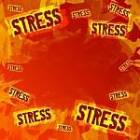Anger is destructive. Your anger can kill you; not to mention
destroy all your important relationships. You can deal with your anger in a way
that is far more simple and far more effective than anything you've tried
before.
Anger is a
completely normal,
usually healthy, human emotion. But when it gets out of control and turns
destructive, it can lead to all kinds of problems; problems at work, in your
personal relationships, and in the overall quality of your life. And it can
make you feel as though you're at the mercy of an unpredictable and powerful
emotion.
Righteous
Anger or Righteous Excuse
A lot of us grew up believing anger was a
"bad" emotion. But it’s okay to feel anger when an outrageous offense
demands a response. You can express those feelings righteously! Thankfully,
God's Word sets clear parameters for getting peeved, one of which is don’t let
the sun go down on your anger. Get angry if you have to, but get over it.
We need to be careful not to use “righteous
anger” as an excuse for all our outbursts. Just know that Scripture contains
many more verses warning people against blowing their cool than verses
advocating such behavior.
Your Anger
can Hurt You
Let’s face some harsh facts. Your anger can hurt you physically
as much as it can hurt you emotionally.
Prolonged anger can cause dangerous increases in hormone levels, blood
pressure, and it can cause damage to internal organs. Some studies indicate
that anger can increase the likelihood of heart attacks and strokes.
Anger can become addictive in that it produces a sort of "adrenalin thrill" somewhat like you can experience
skydiving, bungee jumping, or riding a roller coaster.
Unrestricted
anger
can result in a "rage" that can cause us to harm ourselves or people
around us. I know you've heard of "road rage" and "acts of
passion" that resulted in injury or death, sometimes to innocent parties.
Common
approaches to anger
Popular approaches to anger include "taking a timeout" or "punching a pillow" to vent
your anger. Some suggest that you "scream"
or use exercise as a vent. People are taught conflict resolution, how to be
assertive, and how to remove oneself from anger-inducing situations.
These ideas may be effective and
appropriate when a threat is immediate and immediate action is required because
you need a quick distraction before some harm is done.
A More
Pervasive Anger
There is a far-more-common form of anger that
occurs over and over again without any real-time provocation. Such anger is an
emotional response to the memory or
recollection of an offense suffered in the past - sometimes many years in
the past. When these memories pop into your mind as thoughts; and we mentally chew or ruminate on them; it can become just
like the original incident all over again.
But, it’s all triggered by memories or thoughts.
It’s not happening all over again in most cases.
Some will tell you to “work through your anger.” Analyze your
angry and try to understand why you are angry and how you can deal with it. This
doesn’t quite make sense. If your thoughts are making you angry, wouldn’t it
likely make you more angry as you try to deal with each of the thoughts?
The solution to your anger is so simple that many people have trouble
accepting it. The most effective way to control the negative thinking that
results in recurring anger is "simply
choose not to think about it." It can be very
effective to name the thought, as in "“I
will not think about _____________.”
When a negative thought that you know leads to
anger pops into your mind, simply say to yourself out loud, “I will not think about that.” Do it
again if the idea pops up again; “I will
not think about that.”
Someone said, “That’s easier said than done.”
Not really. You have the built-in authority to decide what you want to think about. If a
thought causes you anger, don’t think
that thought. As you make that choice again and again, your subconscious
remembers how you like to respond and will start to make your response
automatically. It’s amazing how quickly this can happen.
Furthermore, you were made with a subconscious
mind that has over time formed the opinion that you like being angry. So it tries to give you more opportunities,
through selected thoughts, to be angry.
The process of choosing not to dwell on those thoughts will, over time, convince your
subconscious that you do not want to think about that those things anymore.
It’s this process that creates the habit
of peace and breaks the habit of
anger.
At some point, you won't even realize you are
thinking the anger-provoking thoughts because your subconscious mind responds
appropriately before they become conscious thoughts.
Nothing could be more effective than having your subconscious mind handle your anger for
you before you even think about it. That is so cool!
Resources you
can use
There’s a way to deal effectively with anger. Take
3 minutes to learn more at http://findingpersonalpeace.com/r000.
You can use this idea for just about any
negative emotion or habit that bothers you including anger.
I hope Finding Personal Peace helps you as much
as it helped me with my anger.
Rod Peeks















